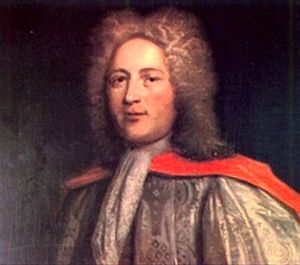Annotation:Hark the Cock Crow’d: Difference between revisions
No edit summary |
No edit summary |
||
| (One intermediate revision by one other user not shown) | |||
| Line 1: | Line 1: | ||
---------- | |||
---- | {{TuneAnnotation | ||
|f_tune_annotation_title= https://tunearch.org/wiki/Annotation:Hark_the_Cock_Crow'd > | |||
'''HARK THE COCK CROW'D.''' Engish, Scottish; Air (6/4 or 6/8 time). D Major. Standard tuning (fiddle). AABBCCDD. The air goes to a song beginning "Hark the cock crow'd, its day all abroad" that appeared in the first volume of Thomas D'Urfey's '''Wit and Mirth; or, Pills to Purge Melancholy''' (1719, p. 310). It was used for songs in ballad operas such at '''The Village Opera''' (1729) and '''Genuine Grub''' (1731), and was printed on songsheets. Edinburgh publisher James Johnson used the tune in his '''Scots Musical Museum''' as the vehicle for a song by Allan Ramsay, entitled "When I think on my lad." However, the melody has an English provenance, for it was composed by London organist Jeremiah Clarke [https://en.wikipedia.org/wiki/Jeremiah_Clarke] and published by Henry Playford and published by him in '''Wit and Mirth''' (1698). The words begin: [[File:clarke.jpg|300px|thumb|right|Jeremiah Clarke]] | |f_annotation='''HARK THE COCK CROW'D.''' Engish, Scottish; Air (6/4 or 6/8 time). D Major. Standard tuning (fiddle). AABBCCDD. The air goes to a song beginning "Hark the cock crow'd, its day all abroad" that appeared in the first volume of Thomas D'Urfey's '''Wit and Mirth; or, Pills to Purge Melancholy''' (1719, p. 310). It was used for songs in ballad operas such at '''The Village Opera''' (1729) and '''Genuine Grub''' (1731), and was printed on songsheets. Edinburgh publisher James Johnson used the tune in his '''Scots Musical Museum''' as the vehicle for a song by Allan Ramsay, entitled "When I think on my lad." However, the melody has an English provenance, for it was composed by London organist Jeremiah Clarke [https://en.wikipedia.org/wiki/Jeremiah_Clarke] and published by Henry Playford and published by him in '''Wit and Mirth''' (1698). The words begin: [[File:clarke.jpg|300px|thumb|right|Jeremiah Clarke]] | ||
<blockquote> | <blockquote> | ||
''Hark! the cock crow'd, 'tis day all abroad,''<br> | ''Hark! the cock crow'd, 'tis day all abroad,''<br> | ||
| Line 13: | Line 13: | ||
''Whilst you shall tope off the March beer, Boys.''<br> | ''Whilst you shall tope off the March beer, Boys.''<br> | ||
</blockquote> | </blockquote> | ||
|f_source_for_notated_version= | |||
|f_printed_sources=Oswald ('''Caledonian Pocket Companion, Book 10'''), 1760; p. 1 (or Book 2, p. 87, depending on the edition selected). | |||
|f_recorded_sources= | |||
|f_see_also_listing= | |||
}} | |||
Latest revision as of 17:00, 26 July 2023
X:1 T:Hark the Cock Crow’d M:6/8 L:1/8 R:Air Q:"Lively" B:Oswald – Caledonian Pocket Companion, Book 10 (1760, p. 1) Z:AK/Fiddler’s Companion K:D A2|F>GA D2d|Tc>de A2c|d>ef Bgf|Te3 A2G| F>GA D2d|Tc>de A2g|f>ga A>Bc|d3 D2:| |:(F/G/)|AFA BGB|AFA BGB|AFA Bcd|Tc3 A2 (c/d/)| ece fdf|geg !fermata!a2g|Tf>ed ABc|d3 D2:| |:A|FDA FDd|cAe cAf|geb Bcd|Tc3 A2G| FDF AFA dAd fdf|afA Bec|d3 D2:| |:(F/G/)|A(F/G/A/F/) BGd|A(F/G/A/F/) BGd|A(F/G/A) Bcd|Tc3 A2(c/d/)| e(c/d/e/c/) f(d/e/f/d/)|g(e/f/g/e/)|!fermata!a2g|(f/g/a)A Bec|d3 D2:|]

Hark! the cock crow'd, 'tis day all abroad,
And looks like a jolly fair morning;
Up Roger and James, and drive out the teams;
Up quickly and carry the corn in.
Davy the drowzy and Barnaby bowzy,
At Breakfast we'll flout and we'll jear boys;
Sluggards shall chatter with Small-beer and Water,
Whilst you shall tope off the March beer, Boys.

